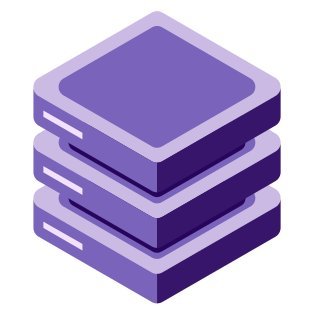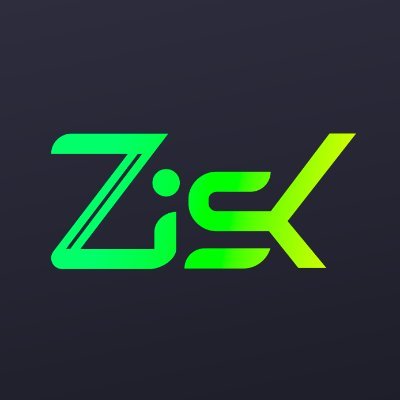zkVM Latest
Here we report on the progress of the leading builders in the zkVM ecosystem, documenting recent significant releases, technical breakthroughs and general updates.
Featuring: @DelphinusLab, @NexusLabs, @openvm_org, @powdr_labs, @SuccinctLabs, @ziskvm, @ProjectZKM, & @zksync.
🔹 Visit for more reports from across the industry 🔹

OpenVM
@openvm_org has released version 1.4.1, introducing major GPU prover performance improvements through memory optimizations and an update to the stark-backend v1.2.1 for CUDA efficiency:
The new version enables proof generation for average @ethereum mainnet blocks in under 12 seconds, with costs as low as $0.0001 per transaction.
Additional updates include configurable segmentation in the CLI, compatibility with Rust nightly-2025-08-02, and several fixes for memory alignment, execution handling, and CUDA kernel management.
🔹 Visit for more reports from across the industry 🔹

powdr labs
@georgwiese of @powdr_labs has released a study covering how the Twist and Shout (by @srinathtv of @MSFTResearch and @SuccinctJT of @a16zcrypto) memory checking arguments can be adapted for hash-based proof systems using techniques from logup* (by @levs57):
The paper explains that by committing to matrices with one-hot rows, both protocols achieve significantly lower commitment costs, especially for small memories such as RISC-V registers in zkVMs.
The adapted methods provide efficient read-only (Shout) and read/write (Twist) memory arguments without requiring commitments to timestamps or memory values, improving scalability for larger tables and proof systems.
🔹 Visit for more reports from across the industry 🔹

Succinct
🔹 Research 🔹
@ronrothblum, Head of Cryptography of @SuccinctLabs, and Eden Florentz-Konopnicki of @TechnionLive, presented a new framework for constructing succinct ZKPs that rely only on one-way functions and make exclusively black-box use of them:
Their work shows that such proofs exist for NP relations computable by bounded-depth circuits, achieving negligible soundness error and additive communication overhead close to the witness size.
Central to their result is a statistically binding polynomial commitment scheme, a new primitive that enables efficient, black-box verification without compromising security or communication efficiency.
🔹 Proof-of-Reserves 🔹
Succinct, together with @UnitasLabs and @primus_labs, has introduced a privacy-preserving Proof-of-Reserves protocol for the USDu stablecoin:
The system verifies that reserves back USDu without exposing off-chain investment strategies. Using zkTLS and Succinct Private Proving, it ensures authentic data and confidential collateral verification, enhancing trust and security across decentralized finance.
🔹 Visit for more reports from across the industry 🔹

ZisK
@ziskvm has released v0.13.0, which enabled the team to achieve near real-time @ethereum block proving with an average proof time of about 7.5 seconds:
The setup uses 24 RTX 5090 GPUs across three clusters and introduces major improvements, including optimized GPU data layout, faster expression evaluation, and enhanced fault tolerance in distributed proving.
Note: The software remains under development and not yet recommended for production use.
🔹 Visit for more reports from across the industry 🔹

ZKM
🔹 Ziren v1.2.0 🔹
@ProjectZKM has released Ziren v1.2.0, an update improving interoperability and developer experience:
The version adds compressed-to-Groth16 proof conversion, a no-std STARK verifier, and upgraded network proving with cycle tracking and configurable distributed proving. A new CLI tool enables easier project setup and proof execution.
Additional features include @golang guest and partial Linux ABI support, Bitcoin guest integration, and Poseidon2/AES-128 precompiles. The release also updates documentation, dependencies, and security for greater stability.
The project also open-sourced Ziren’s GPU prover binaries to improve reproducibility and widen access to accelerated proving - foundational for community testing and the upcoming ZKM Proof Network.
🔹 x402 🔹
ZKM published an article explaining its role as a facilitator for x402 agent-to-agent payments:
Working alongside @MetisL2, @GOATRollup, and @LazAINetwork, ZKM fills in the missing layers - settlement, attribution, and cryptographic proof - making x402 trust-minimized and verifiable.
🔹 Media 🔹
In a recent episode of @HouseofZK Radio, @DacEconomy, Co-founder of ZKM, shared insights on how ZK intersects with artificial intelligence:
He discussed ZKM’s decision to build a universal zkVM based on MIPS32r2 for verifiable computation beyond blockchain, and explained how real-time proving can enable trusted AI inference. Ming also outlined @LazAINetwork's vision for socially-driven, verifiable data.
Full podcast:
🔹 Events 🔹
ZKM is a sponsor of Verifying Intelligence 3.0, hosted by @HouseofZK alongside @brevis_zk and @invisiblgarden:
The event takes place on Nov 19th at Cultural Vivo in Buenos Aires during @EFDevcon. It explores verifiable AI, privacy, and agent-to-agent payments - and is also supported by @MinaProtocol, @0G_labs, @EtherArgentina, @VeridiseInc, @OntologyNetwork, @Starknet, and @ZKVProtocol.
ZKM is also a sponsor or @EtherArgentina's hackathon, where they'll run their own dedicated track.
🔹 Partnerships🔹
ZKM announced a partnership with @VeridiseInc to verify the determinism of Ziren, its zkVM’s arithmetic core, using the Picus verification platform:
Veridise adapted Ziren’s Plonky3 constraints and ran analyses through @AuditHubDev. Initial results confirmed deterministic behavior for addition and subtraction in the AddSub chip. The teams plan to expand verification to full circuits and integrate checks into ZKM’s development workflow.
🔹 Visit for more reports from across the industry 🔹

7,35 tys.
44
Treści na tej stronie są dostarczane przez strony trzecie. O ile nie zaznaczono inaczej, OKX nie jest autorem cytowanych artykułów i nie rości sobie żadnych praw autorskich do tych materiałów. Treść jest dostarczana wyłącznie w celach informacyjnych i nie reprezentuje poglądów OKX. Nie mają one na celu jakiejkolwiek rekomendacji i nie powinny być traktowane jako porada inwestycyjna lub zachęta do zakupu lub sprzedaży aktywów cyfrowych. Treści, w zakresie w jakim jest wykorzystywana generatywna sztuczna inteligencja do dostarczania podsumowań lub innych informacji, mogą być niedokładne lub niespójne. Przeczytaj podlinkowany artykuł, aby uzyskać więcej szczegółów i informacji. OKX nie ponosi odpowiedzialności za treści hostowane na stronach osób trzecich. Posiadanie aktywów cyfrowych, w tym stablecoinów i NFT, wiąże się z wysokim stopniem ryzyka i może podlegać znacznym wahaniom. Musisz dokładnie rozważyć, czy handel lub posiadanie aktywów cyfrowych jest dla Ciebie odpowiednie w świetle Twojej sytuacji finansowej.





